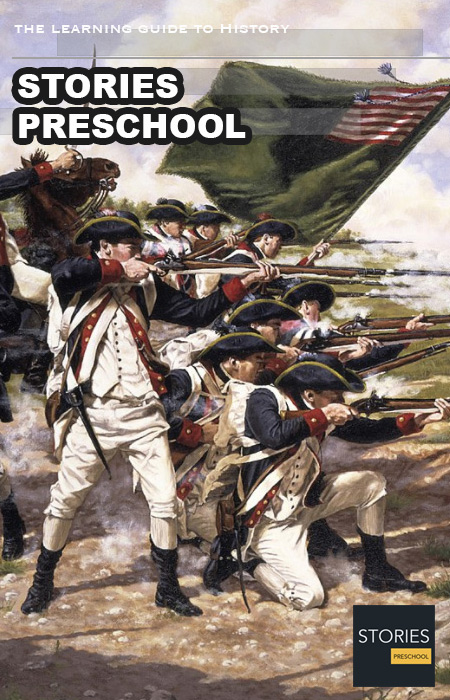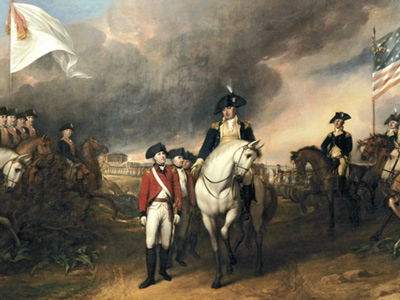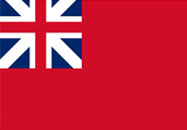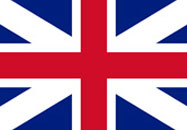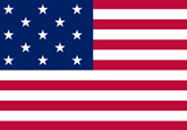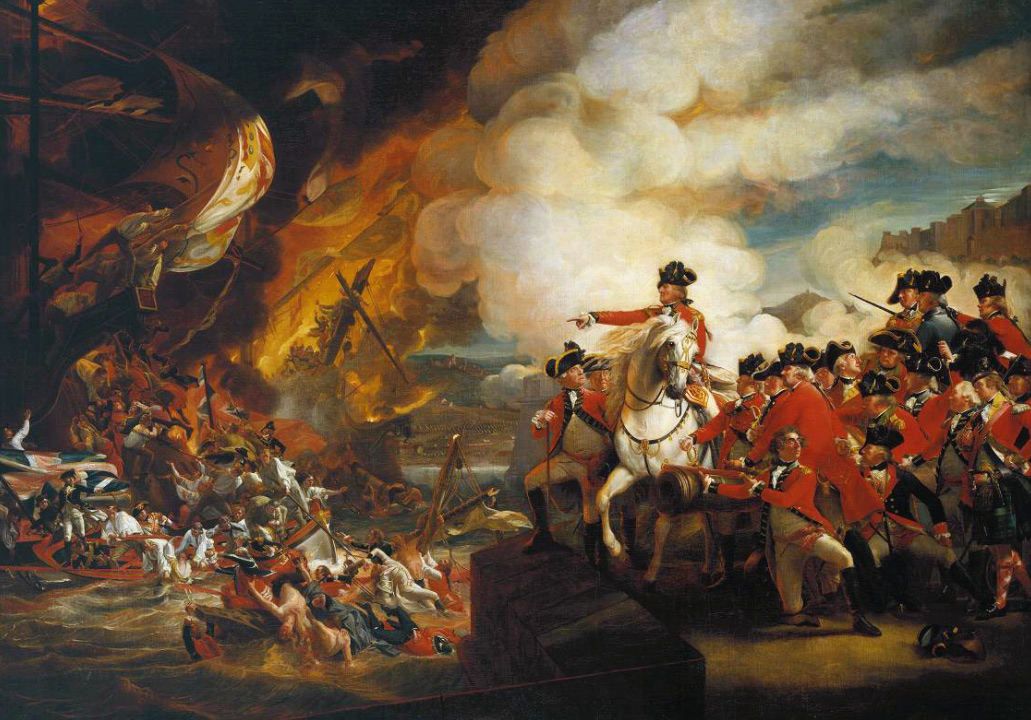American Revolutionary War (1775–1783)
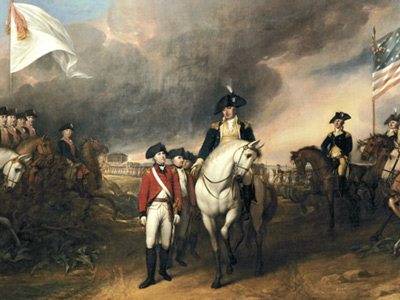
The American Revolutionary War (1775–1783), also known as the American War of Independence, was a global war that began as a conflict between Great Britain and her Thirteen Colonies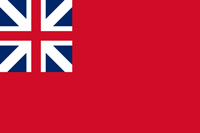 The Thirteen Colonies, also known as the Thirteen British Colonies, the Thirteen American Colonies, or later as the United Colonies, were a group of British colonies on the Atlantic coast of North America. Founded in the 17th and 18th centuries, they began fighting the American Revolutionary War in April 1775 and formed the United States of America by declaring full independence in July 1776., which declared independence as the United States
The Thirteen Colonies, also known as the Thirteen British Colonies, the Thirteen American Colonies, or later as the United Colonies, were a group of British colonies on the Atlantic coast of North America. Founded in the 17th and 18th centuries, they began fighting the American Revolutionary War in April 1775 and formed the United States of America by declaring full independence in July 1776., which declared independence as the United States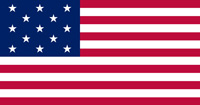 The United States of America (USA), is a country in North America. The American Revolutionary War (April 19, 1775 - September 3, 1783) was the military conflict in which American patriot forces under George Washington's command defeated the British, establishing and securing the independence of the United States. After the Revolution, the United States gained independence, the first nation-state founded on Enlightenment principles of liberal democracy. of America.
The United States of America (USA), is a country in North America. The American Revolutionary War (April 19, 1775 - September 3, 1783) was the military conflict in which American patriot forces under George Washington's command defeated the British, establishing and securing the independence of the United States. After the Revolution, the United States gained independence, the first nation-state founded on Enlightenment principles of liberal democracy. of America.
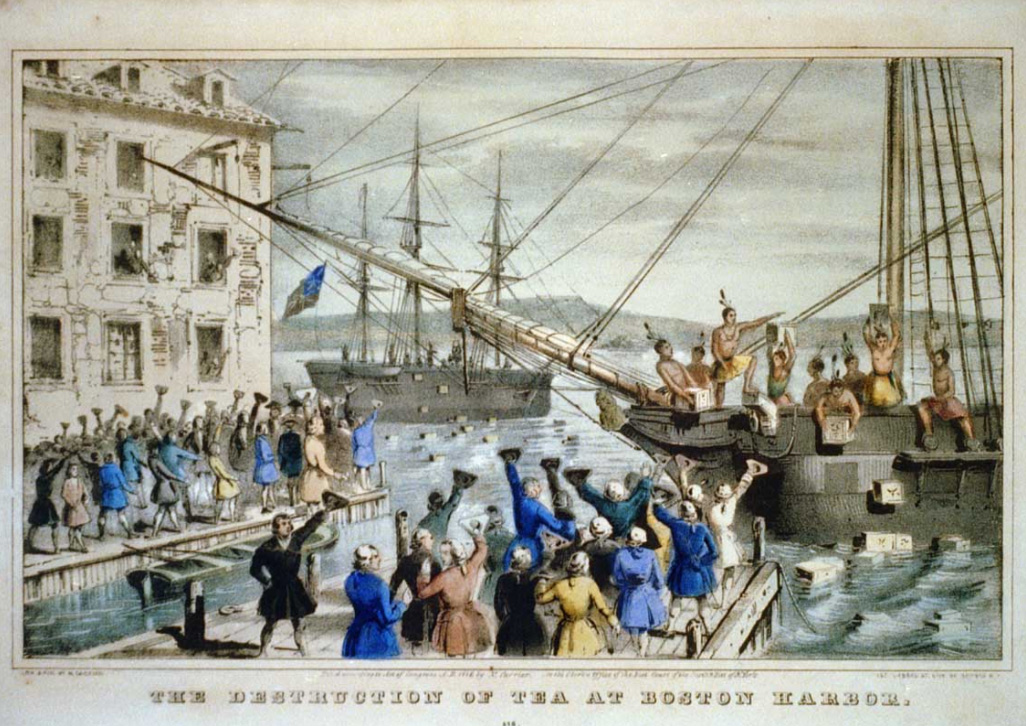
After 1765, growing philosophical and political differences strained the relationship between Great Britain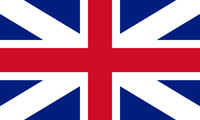 The Kingdom of Great Britain was a sovereign country in Western Europe from 1 May 1707 to the end of 31 December 1800. The state was created by the 1706 Treaty of Union and ratified by the Acts of Union 1707, which united the kingdoms of England (which included Wales) and Scotland to form a single kingdom encompassing the whole island of Great Britain and its outlying islands, with the exception of the Isle of Man and the Channel Islands. and its colonies. Following the Stamp Act, Patriot protests against taxation without representation escalated into boycotts, which culminated in the Sons of Liberty destroying a shipment of tea in Boston Harbor. Britain responded by closing Boston Harbor and passing a series of punitive measures against Massachusetts colony. Massachusetts colonists responded with the Suffolk Resolves, and they established a shadow government which wrested control of the countryside from the Crown. Twelve colonies formed a Continental Congress to coordinate their resistance, establishing committees and conventions that effectively seized power.
The Kingdom of Great Britain was a sovereign country in Western Europe from 1 May 1707 to the end of 31 December 1800. The state was created by the 1706 Treaty of Union and ratified by the Acts of Union 1707, which united the kingdoms of England (which included Wales) and Scotland to form a single kingdom encompassing the whole island of Great Britain and its outlying islands, with the exception of the Isle of Man and the Channel Islands. and its colonies. Following the Stamp Act, Patriot protests against taxation without representation escalated into boycotts, which culminated in the Sons of Liberty destroying a shipment of tea in Boston Harbor. Britain responded by closing Boston Harbor and passing a series of punitive measures against Massachusetts colony. Massachusetts colonists responded with the Suffolk Resolves, and they established a shadow government which wrested control of the countryside from the Crown. Twelve colonies formed a Continental Congress to coordinate their resistance, establishing committees and conventions that effectively seized power.
British attempts to disarm the Massachusetts militia at Concord in April 1775 led to open combat. Militia forces then besieged Boston, forcing a British evacuation in March 1776, and Congress appointed George Washington to command the Continental Army. Concurrently, an American attempt to invade Quebec and raise rebellion against the British decisively failed. On July 2, 1776, the Continental Congress voted for independence, issuing its declaration on July 4. Sir William Howe launched a British counter-offensive, capturing New York City and leaving American morale at a low ebb. However, victories at Trenton and Princeton restored American confidence. In 1777, the British launched an invasion from Quebec under John Burgoyne, intending to isolate New England. Instead of assisting this effort, Howe took his army on a separate campaign against Philadelphia, and Burgoyne was decisively defeated at Saratoga in October 1777.
Burgoyne's defeat had drastic consequences; France formally allied with the Americans and entered the war in 1778, and Spain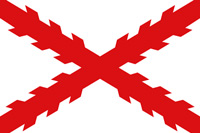 The Spanish Empire was a colonial empire governed by Spain and its predecessor states between 1492 and 1976. One of the largest empires in history, it was the first to usher the European Age of Discovery and achieve a global scale, controlling vast territory. It was one of the most powerful empires of the early modern period, reaching its maximum extent in the 18th century. joined the war the following year as an ally of France
The Spanish Empire was a colonial empire governed by Spain and its predecessor states between 1492 and 1976. One of the largest empires in history, it was the first to usher the European Age of Discovery and achieve a global scale, controlling vast territory. It was one of the most powerful empires of the early modern period, reaching its maximum extent in the 18th century. joined the war the following year as an ally of France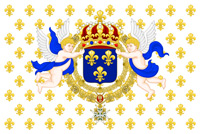 The Kingdom of France is the historiographical name or umbrella term given to various political entities of France in the medieval and early modern period. It was one of the most powerful states in Europe since the High Middle Ages. It was also an early colonial power, with possessions around the world. Colonial conflicts with Great Britain led to the loss of much of its North American holdings by 1763. The Kingdom of France adopted a written constitution in 1791, but the Kingdom was abolished a year later and replaced with the First French Republic. but not as an ally of the United States. In 1780, the Kingdom of Mysore attacked the British in India, and tensions between Great Britain and the Netherlands erupted into open war. In North America, the British mounted a "Southern strategy" led by Charles Cornwallis which hinged upon a Loyalist uprising, but too few came forward. Cornwallis suffered reversals at King's Mountain and Cowpens. He retreated to Yorktown, Virginia, intending an evacuation, but a decisive French naval victory deprived him of an escape. A Franco-American army led by the Comte de Rochambeau and Washington then besieged Cornwallis' army and, with no sign of relief, he surrendered.
The Kingdom of France is the historiographical name or umbrella term given to various political entities of France in the medieval and early modern period. It was one of the most powerful states in Europe since the High Middle Ages. It was also an early colonial power, with possessions around the world. Colonial conflicts with Great Britain led to the loss of much of its North American holdings by 1763. The Kingdom of France adopted a written constitution in 1791, but the Kingdom was abolished a year later and replaced with the First French Republic. but not as an ally of the United States. In 1780, the Kingdom of Mysore attacked the British in India, and tensions between Great Britain and the Netherlands erupted into open war. In North America, the British mounted a "Southern strategy" led by Charles Cornwallis which hinged upon a Loyalist uprising, but too few came forward. Cornwallis suffered reversals at King's Mountain and Cowpens. He retreated to Yorktown, Virginia, intending an evacuation, but a decisive French naval victory deprived him of an escape. A Franco-American army led by the Comte de Rochambeau and Washington then besieged Cornwallis' army and, with no sign of relief, he surrendered.
Whigs in Britain had long opposed the pro-war Tories in Parliament, and the surrender gave them the upper hand. In early 1782, Parliament voted to end all offensive operations in North America, but the war continued in Europe and India. Britain remained under siege in Gibraltar but scored a major victory over the French navy. On September 3, 1783, the belligerent parties signed the Treaty of Paris in which Great Britain agreed to recognize the sovereignty of the United States and formally end the war. French involvement had proven decisive, but France made few gains and incurred crippling debts. Spain made some minor territorial gains but failed in its primary aim of recovering Gibraltar. The Dutch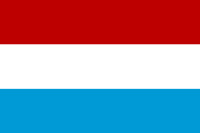 The Dutch Republic was a confederation that existed from 1579, during the Dutch Revolt, to 1795. It was a predecessor state of the Netherlands and the first fully independent Dutch nation state. Although the state was small and contained only around 1.5 million inhabitants, it controlled a worldwide network of seafaring trade routes. The income from this trade allowed the Dutch Republic to compete militarily against much larger countries. It amassed a huge fleet of 2,000 ships, initially larger than the fleets of England and France combined. were defeated on all counts and were compelled to cede territory to Great Britain. In India, the war against Mysore and its allies concluded in 1784 without any territorial changes.
The Dutch Republic was a confederation that existed from 1579, during the Dutch Revolt, to 1795. It was a predecessor state of the Netherlands and the first fully independent Dutch nation state. Although the state was small and contained only around 1.5 million inhabitants, it controlled a worldwide network of seafaring trade routes. The income from this trade allowed the Dutch Republic to compete militarily against much larger countries. It amassed a huge fleet of 2,000 ships, initially larger than the fleets of England and France combined. were defeated on all counts and were compelled to cede territory to Great Britain. In India, the war against Mysore and its allies concluded in 1784 without any territorial changes.
HISTORY
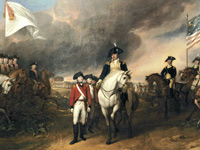
RESOURCES
This article uses material from the Wikipedia article "American Revolutionary War (1775–1783)", which is released under the Creative Commons Attribution-Share-Alike License 3.0.
© Stories Preschool. All Rights Reserved.
